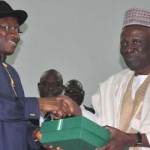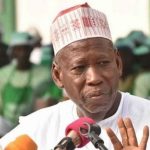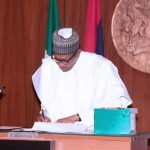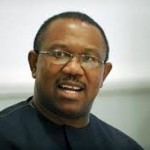(FEATURES) Will Nigeria Ever Have A Better Tomorrow In Olympic Games?
African News, Articles/Opinion, Featured, Featured Contributors/Columnists, Latest Headlines Saturday, July 31st, 2021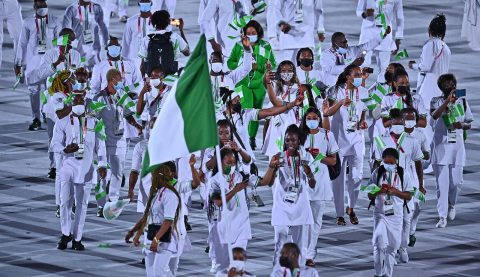
By Cornelius Ehimiaghe
(AFRICAN EXAMINER) – Nigerian sports administrators have a knack for doing things that would make “last minute.com” to envy them. Sometimes, they may not even respond to a basic thing, as an email letter. While the International Olympic Committee (IOC) and International Federation of Association Football (FIFA) are currently promoting the safeguarding of athletes, their representatives in Nigeria seemed to be pretending that they have not heard about or seen the memos or emails conveying to them their responsibility in respect of their “duty of care” to Nigerian athletes, children and youths who take part in sport. The recent disqualification of 10 Nigerian athletes from taking part in their respective events at Tokyo 2020 is nothing short of “systemic adult abuse,” which needs to be investigated by the Senate Committee on Sport.
So far, Tokyo 2020 has been a disappointment for not only millions of Nigerians, but supporters of Nigeria’s track record in sporting competitions, especially at the global stage. Regrettably, it has been a harvest of shocking losses for Team Nigeria since the beginning of the ongoing Olympic Games. Worse still, the 10 Nigerian athletes have been banned from representing Nigeria at the ongoing Olympic Games for failure to meet the minimum testing requirements under Rule 15 of the Anti-doping Rules. Meanwhile, the Athletic Federation of Nigeria (AFN) has taken responsibility for the qualification and offered explanation of what transpired in details. Similarly, the Federal Ministry of Youths and Sports, has officially expressed its regret at the ugly development too. Moreover, in our usual ‘fire brigade’ approach to issues bordering on lapses and systemic failure, the supervisory ministry has gone ahead to applaud the decision of the AFN to appoint one Prof. Ken Anugweje as Head of its Medical and Anti-doping Commission. Can this step redeem the damage that has already been done? Your guess is as good as mine.
The Nigerian Olympic Committee (NOC) officials and bigwigs are hoping for Okagbare to be a “Blessing for Nigeria” again, for Ese to show that she is God’s gift to Nigeria and for Adekuoroye to make Tokyo her “year of happiness” and singing at the medals podium. Behold! Just as I was putting finishing touches to this article, the breaking news from Tokyo further shattered Nigeria’s surest hope of winning a medal. Blessing Okagbare had been provisionally suspended with immediate effect by the Athletic Integrity Unit (AIU) after a sample collected from the sprinter tested positive for human Growth Hormone. According to the devastating report, she was notified of the adverse analytical finding and of her suspension in the early hours of Saturday while looking forward to participating in the semi-finals of the women’s 100 meters scheduled to hold later in the evening. From the way things are going, I hope this is not going to be a London 2012 scenario. If this happens again, some Nigerian sports (mal)administrators are already sensing that their days of collecting “estacode” for doing nothing to develop grassroots sports in Nigeria is at risk.
For us at Community Sport and Educational Development (CSED) Initiative, sport for change Non-Governmental Organisation (NGO), we want Nigerians to take a walk down memory and reminisce about the year (1996), when Nigerian youths showed the world that they are not “lazy” in every sense of the word. That was the year a Nigerian Police woman arrested the world and the footballers united Nigerians who were groaning under the yoke of a military dictatorship. Those were the days when Nigerian athletes were children of the local farmer, market woman, teacher, bricklayer, office messenger and even the unemployed parents. Fast forward to 2021, if your parents are not Directors in the ministries, you are not recommended by a politician, you were not born abroad and you did not school abroad, you are not qualified to represent Nigeria. The exception to this “new normal” is if these result at all cost sport administrators cannot locate diaspora Nigerian youths, who can possible consume eba than the home based Nigerian athletes. Some of these foreign based athletes are even parachuted into Team Nigeria without them attending a trial or the National Sport Festival.
The failure to use sports to engage and empower the home based future Ajunwas, the Yekinis, the Olihas, the Waziris, the Odizors,”the Oshonakes, the Inuwa-Rigogos, the Andehs, the Usiyens and the Abubakars will continue to breed a culture of hopelessness and disempowerment of our local youths. The result is the “checking out” of Nigeria at all cost syndrome, increased level of anti-social behaviour and the restiveness of Nigerian youths.
Without mincing words, those saddled with the responsibility of managing sports in Nigeria really have to do a rethink and come up with proactive and pragmatic solutions to the myriad of problems that have held the sector down, over the years. There is no better time than now for us to do the needful as a nation, so that our beloved country can progressively return to her winning ways at both regional and global sporting competitions. I strongly believe that this is achievable because Nigeria undoubtedly remains a sport-loving nation that is so abundantly blessed with talented athletes that can make us really proud when things are done appropriately and professionally by sport administrators.
Cornelius Ehimiaghe is a sport enthusiast, social worker and Trustee of CSED, a Sport for Change NGO based in the United Kingdom (UK).
Related Posts
Short URL: https://www.africanexaminer.com/?p=66037


